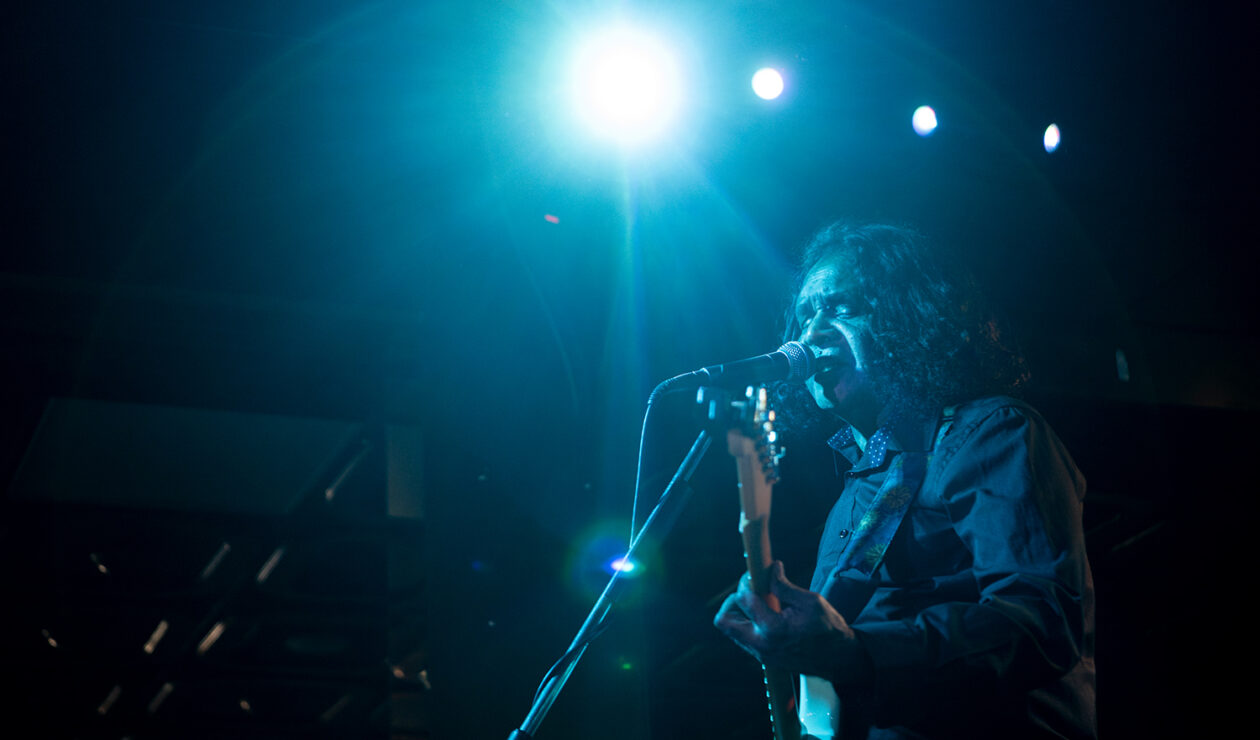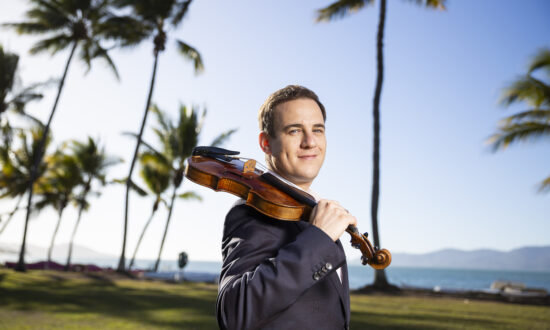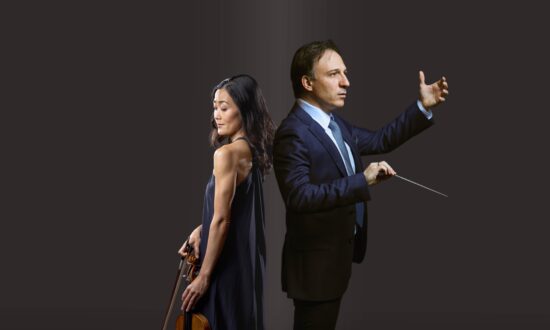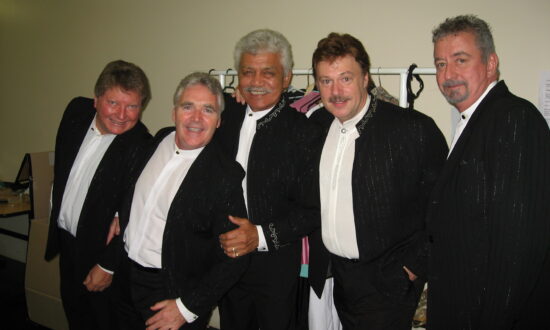Aboriginal and Torres Strait Islander readers are advised this article contains names of deceased people.
————-
No Fixed Address is a staple memory for many Indigenous households.
Playing last week at Her Majesty’s Theatre, the band was able to bring back all the memories their songs – which have acted as a soundtrack to the lives of plenty of fans – are tangled up with. The music took many in the crowd right back to a time when our parents still towered over us and the Saturday cleaning schedule began with songs such as “We Have Survived”, “Sunrise” and “Black Man’s Rights”.
For this performance, the legendary band was supported by the equally talented and award-winning First Nations Voices – a combined act featuring Glenn Skuthorpe, Nancy Bates and Jungaji. During their set, each of these musicians offered insight into their respective musical journeys, chronicling heart-wrenching stories filled with life, culture, and the exploration of time.

Sean Moffat plays lead guitar in the band’s current line-up. Photo: John Janson-Moore / supplied
Originally formed in 1979, No Fixed Address started out as a reggae rock band combining the creative talents of a group of Centre for Aboriginal Studies in Music (CASM) students. Led by Pitjantjatjara man Uncle Bart Willoughby on lead vocals and drums, the band also featured Gunaikurnai man Uncle Ricky Harrison as rhythm guitarist and principal songwriter, Ngarrindjeri man Uncle Leslie Lovegrove on lead guitar, Ngarrindjeri woman Aunty Veronica Rankine (now deceased) on tenor saxophone and Uncle John Miller on bass. Inspired by artists like Bob Marley, Peter Tosh, and Jimmy Cliff, they became legends of the Australian music scene and performed alongside groups such as Men at Work, Midnight Oil, INXS, and The Taj Mahal.
After taking some breaks over the intervening decades, the band re-formed in 2016, with fresh faces joining some of the original line-up to play the same great tunes.
Layered with this history, No Fixed Address’s Adelaide performance offered a rare insight into Australia and gave us the opportunity to feel a huge range of emotions.
The band created an immersive environment, inviting the crowd to step out of their current lives and just feel the music – an incredible experience we all wished could last longer. The track “We Have Survived” was a highlight of the night, as it brought all feet to the floor – moving, dancing, and expressing their love of the incredibly talented musicians. Through this song, and across all the others, Uncle Bart proved he is still able to smash it out and weave story after story as he skilfully and simultaneously sings and plays the drums.
Her Majesty’s Theatre was a peculiar space in which to stage this show, given the current political environment and the stance No Fixed Address’s music takes against the monarchy and its rules. Standing in the theatre felt at odds with the band, but then the music came in and gave a giant rebuke to the government, police and disgusting racism that has taken thousands of Indigenous lives away from their families.
No Fixed Address drove these messages home even more strongly as they explained each song, and – from one to the next – the tracks seemed to move into our bodies, creating a state of being and belonging among those at the show.
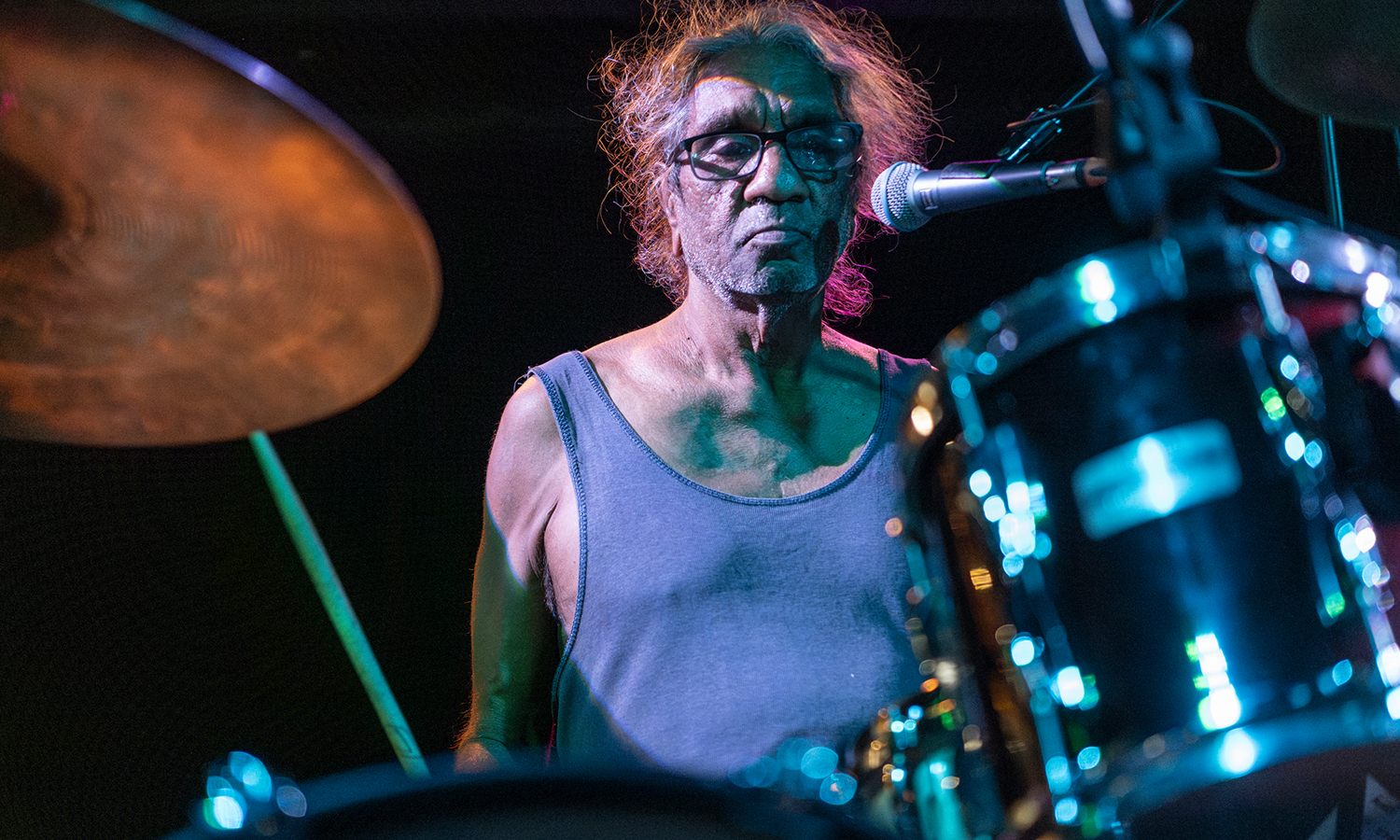
Band leader Bart Willoughby gave a searing performance. Photo: John Janson-Moore / supplied
The show reignited the flames of power in the hearts of Blakfullas and non-Indigenous fans, with the audience including a sprinkle of politicians. Among them was Adelaide Lord Mayor Jane Lomax-Smith, whose own review described the band as “nothing less than spectacular”.
With No Fixed Address re-emerging in time for this year’s referendum on the First Nations Voice to Parliament, it’s easy to wonder if they might be tempted to create some new powerful music to soundtrack our times. If their dedication to performing keeps on keeping on, maybe they’ll have to write new lyrics tracking our shift from surviving to flourishing.

Get InReview in your inbox – free each Saturday. Local arts and culture – covered.
Thanks for signing up to the InReview newsletter.
No Fixed Address and First Nations Voices played at Her Majesty’s Theatre on August 24.
Leesha Cole is a Ngarrindjeri writer and actor. She is one of the first recipients of the Arts SA and InReview First Nations Arts Writing Mentorship. Leesha is working with Meriam (Magaram), Wuthathi and Bindal Juru journalist and business woman Nancia Guivarra to write a series of articles for publication in InReview.
Support local arts journalism
Your support will help us continue the important work of InReview in publishing free professional journalism that celebrates, interrogates and amplifies arts and culture in South Australia.
Donate Here
